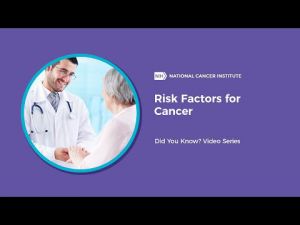About-cancer/causes-prevention/risk
Risk Factors for Cancer
Most cancer risk (and protective) factors are initially identified in epidemiology studies. In these studies, scientists look at large groups of people and compare those who develop cancer with those who don’t. These studies may show that the people who develop cancer are more or less likely to behave in certain ways or to be exposed to certain substances than those who do not develop cancer.
Such studies, on their own, cannot prove that a behavior or substance causes cancer. For example, the finding could be a result of chance, or the true risk factor could be something other than the suspected risk factor. But findings of this type sometimes get attention in the media, and this can lead to wrong ideas about how cancer starts and spreads. (See the Common Cancer Myths and Misconceptions page for more information.)
When many studies all point to a similar association between a potential risk factor and an increased risk of cancer, and when a possible mechanism exists that could explain how the risk factor could actually cause cancer, scientists can be more confident about the relationship between the two.
The list below includes the most-studied known or suspected risk factors for cancer. Although some of these risk factors can be avoided, others—such as growing older—cannot. Limiting your exposure to avoidable risk factors may lower your risk of developing certain cancers.
- Age
- Alcohol
- Cancer-Causing Substances
- Chronic Inflammation
- Diet
- Hormones
- Immunosuppression
- Infectious Agents
- Obesity
- Radiation
- Sunlight
- Tobacco
Related Resources
Cancer Prevention Overview (PDQ®)–Patient Version
